Our faculty include those specializing in archaeology, biological anthropology and cultural anthropology.
Archaeology
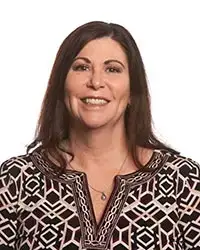
Dr. Renee B. Whitman
(Professor, Archaeology)
132 Physical Science
Phone: 607-436-3599
E-Mail: Renee.Whitman@oneonta.edu
Spring 2026 student meeting (office hours): Monday & Wednesday 1-2:30 p.m.
Dr. Renee Whitman received her BA in anthropology from Indiana University of Pennsylvania, and her MA and Ph.D. in anthropology from the University of Tennessee at Knoxville. She joined our department in the Fall 2002 semester. Before coming to SUNY Oneonta, Dr. Whitman was a Visiting Assistant Professor in the Department of Sociology, Anthropology, and Social Work at Skidmore College.
Courses taught:
- ANTH 1650 Prehistoric World Cultures
- ANTH 2600 Native American Archaeology
- ANTH 2610 The Aztecs and Their Ancestors
- ANTH 4610 Zooarchaeology
- ANTH 4630 Archaeological Field and Laboratory Methods
- ANTH 4600 Field School in Archaeology (summer session)
- ANTH 4898 Issues in Anthropology
Activities:
Dr. Whitman's primary research and teaching interests are zooarchaeology, Eastern North American archaeology, PaleoIndian and Archaic period subsistence patterns, prehistoric North American dog domestication, and the archaeology of hunter-gatherers. She has fieldwork experience in North America and Europe and has conducted much of her research at the site of Dust Cave, Alabama.
Recently, Dr. Whitman has been involved in the Eastern Archaic Faunal Working Group to compile zooarchaeological data into the Digital Archaeological Record (tDAR). She works with six other colleagues to import data into tDAR and use it to compare human subsistence adaptations in the eastern United States. Several publications have resulted from this research and a book is in preparation.
Dr. Whitman is the author of an introductory textbook, Prehistoric World Cultures, 3rd edition through Cognella Press, and recently published a book chapter titled, “Caches and Burials: Ritual Use of Dust Cave during the Paleoindian and Archaic Periods,” in Shaman, Priest, Practice, Belief: Materials of Ritual and Religion in Eastern North America edited by Stephen B. Carmody and Casey R. Barrier and published by University of Alabama Press.
Dr. Whitman received the Chancellor’s Award for Excellence in Teaching in 2009 and the Richard J. Siegfried Junior Faculty Prize in Academic Excellence in 2006. Publications include: Prehistoric World Cultures, preliminary edition (Cognella Press, 2013), “Paleoindian and Archaic activities at Dust Cave, Alabama: The secular and the sacred “(North American Archaeologist 2011), “Late Archaic site use at Sachsen Cave Shelter, Upper Cumberland Plateau, Tennessee” (with Jay Franklin and Maureen Hays, North American Archaeologist2011), “What’s for Dinner?: Investigating archaeological correlates for food processing at Dust Cave, Alabama” (with Lara K. Homsey and Kandace D. Hollenbach, Southeastern Archaeology 2010), “Documenting subsistence change during the Pleistocene/Holocene transition: Investigations of paleoethnobotanical and zooarchaeological data from Dust Cave, Alabama” (with Kandace D. Hollenbach, in Integrating Zooarchaeology and Paleoethnobotany: A Consideration of Issues, Methods, and Cases, 2010), “The Nelson site: A Late Middle Woodland habitation locale on the Nolichucky River, Washington County, Tennessee” (with Jay D. Franklin and Michelle L. Hammett, Tennessee Archaeology 2008), Foragers of the Terminal Pleistocene in North America (co-editor, University of Nebraska Press, 2007), Bones as Tools: Archaeological Studies of Bone Tool Manufacture, Use and Classification (co-editor, BAR International Series 1622, 2007), and “Early and Mid-Holocene dogs in Southeastern North America: Examples from Dust Cave” (with Darcy F. Morey and John H. Relethford, Southeastern Archaeology 2005).
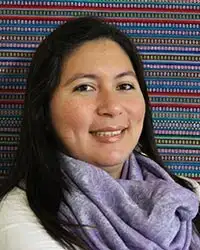
Dr. Elizabeth K. Cruzado Carranza
(Adjunct Lecturer, Archaeology)
131 Physical Science
Phone: 607-436-2207
E-Mail: elizabeth.cruzadocarranza@oneonta.edu
Dr. Cruzado Carranza obtained her BA in Social Science & Professional Archaeology from Universidad Nacional Mayor de San Marcos, Lima, Peru, her MA in Archaeology and Interdisciplinary Graduate Certificate Program in Museum Studies from the University of Memphis, Memphis, Tennessee, then her PhD in Geography and Anthropology from Louisiana State University, Baton Rouge, Louisiana. She joined our department in the Spring of 2022. Before coming to Oneonta, she was a Field and Lab Archaeologist for Unlimited Research Associates, Inc. in Baton Rouge, Louisiana.
Courses taught:
- ANTH 1650 Prehistoric World Cultures
- ANTH 3010 North American Indians
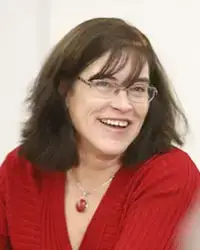
Cynthia J. Klink
(Adjunct Assistant Professor, Archaeology)
140 Physical Science
Phone: 607-436-3308
E-Mail: Cynthia.Klink@oneonta.edu
Cynthia Klink is an archaeologist who is currently completing her Ph.D. in Anthropology from the University of California, Santa Barbara, where she also received her MA in anthropology. She earned BA degrees in Anthropology and Geology at the University of Wisconsin, Milwaukee. Cynthia also received interdisciplinary graduate training in archaeology, geology, and paleoenvironmental studies through the Institute for Quaternary Studies at the University of Maine, Orono. Her dissertation research examines the process of human colonization and “settling in” to new landscapes, through the analysis of changing land use patterns during the Preceramic Period (before 3500 BP) in the Lake Titicaca basin, Peru. A major focus is identifying and understanding the temporal development of “place-oriented” adaptations and cultural ties to the natural landscape.
Courses taught
- ANTH 1000 Introduction to Cultural Anthropology
- ANTH 1600 Introduction to Archaeology
- ANTH 3620 The Incas and Their Ancestors
- ANTH 3730 Women & Gender in Prehistory
- ANTH 3740 Archaeology and Environmental Change
- ANTH 4620 Understanding Stone Tools
- ANTH 4898 Issues in Anthropology
Activities:
Her primary research and teaching interests including Andean prehistory, lithic (stone tool) technology, human-landscape relations, the archaeology of social identities (especially gender and ethnicity), hunter-gatherers, and North American archaeology. The bulk of her research has been conducted in Peru, but she also has fieldwork experience in multiple areas of the United States.
She is senior author of the highly regarded “A projectile point chronology for the South-Central Andean Highlands” (Cynthia Klink and Mark Aldenderfer, Advances in Titicaca Basin Archaeology – 1, Cotsen Institute, University of California, Los Angeles.). Her examination of Preceramic lithic technological organization at the site of Kasapata and the process of emerging sedentism in the Cusco Valley, Peru will be published this year, also by the Cotsen Institute. Cynthia has just accepted an invitation to become the associated investigator in charge of Peruvian and Bolivian data for the new international direction of the Paleoindian Database of the Americas (PIDBA).
Biological Anthropology
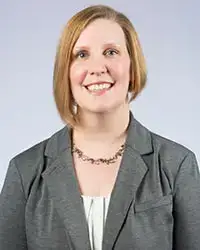
Dr. Tracy Betsinger, Chair
(Professor, Biological Anthropology)
138 Physical Science
Phone: 607-436-3394
E-Mail: Tracy.Betsinger@oneonta.edu
Spring 2026 student meeting (office) hours: Wednesday 11-1 p.m.
Dr. Tracy Betsinger is a Professor of Anthropology, specializing in Biological Anthropology. She competed her B.A. in Anthropology and Indian Studies at the University of North Dakota, her B.S. in Biology from the University of Wisconsin-LaCrosse, her M.A. in Anthropology from the University of Tennessee, and her Ph.D. in Anthropology from The Ohio State University. Prior to joining our department, Dr. Betsinger held a post-doctoral research position with the Global History of Health Project in conjunction with The Ohio State University. She joined our department in Fall 2008.
Dr. Betsinger’s research interests include bioarchaeology, paleopathology, mortuary archaeology, and skeletal biology. She investigates the health and well-being of past populations by examining patterns of disease, stress and deprivation, and trauma. She is interested in the effects of gender, social status, and settlement patterns on these aspects of health. Her research has also focused on the mortuary treatment of perinatal or fetal burials.
Currently, Dr. Betsinger is involved in a project examining a skeletal sample from 18th-19th century Halifax, Nova Scotia, focusing on the health patterns of mothers and infants (with Dr. Amy B. Scott, University of New Brunswick). She has also examined the effects of urbanization on health patterns in medieval Poland, and she has investigated atypical mortuary burial patterns, such as the “vampire” burials of post-medieval Poland.
Courses taught:
- ANTH 1300 Introduction to Biological Anthropology
- ANTH 3300 Anthropology of Death
- ANTH 3304 Human Biology and Culture Change
- ANTH 3301 Anthropology and Dying
- ANTH 4350 Human Skeletal Anatomy
- ANTH 4351 Forensic Anthropology
- ANTH 4353 Advanced Skeletal Anatomy
- ANTH 4352 Bioarchaeology
- ANTH 4898 Issues in Anthropology
Recent Activities:
March 2022: Dr. Betsinger collected skeletal data from the Halifax collection, working with Emily Thomas, an undergraduate from SUNY Oneonta.
November 2021: Dr. Betsinger gave the presentation, “Vampire Bites: The Anthropology of an Enduring Myth” to the Office of the Attorney General for the State of Ohio.
September 2020: Co-applicant for a funded grant from the Social Sciences and Humanities Research Council, Canada, for the study of skeletal remains from 18th-19th century Halifax, Nova Scotia.
Recent Publications:
Scott AB, Betsinger TK, MacInnes S, Fonzo M, Hughes N. Forthcoming. A colony without a cough? An exploration of tuberculosis at the 18th century Fortress of Louisbourg, Canada. Historical Archaeology.
Smith MO, Betsinger TK. 2021. Patterns of antemortem tooth loss in late prehistoric west-central Tennessee. Dental Anthropology 34:3-20.
Betsinger TK, DeWitte, SN. 2021. Toward a bioarchaeology of urbanization: Demography, health, and behavior in cities in the past. Yearbook of Physical Anthropology 175 (S.72):79-118.
Betsinger TK, DeWitte SN. 2020. The Bioarchaeology of Urbanization: The Biological, Demographic, and Social Consequences of Living in Cities. Springer Press.
DeWitte SN, Betsinger TK. 2020. Introduction to Bioarchaeology of Urbanization. In Betsinger TK, DeWitte SN, editors, The Bioarchaeology of Urbanization: The Biological, Demographic, and Social Consequences of Living in Cities. Springer Press, 1-24.
Betsinger TK, DeWitte SN, Agnew AM, Justus H. 2020. Frailty, survivorship, and stress in medieval Poland: A comparison of urban and rural populations. In Betsinger TK, DeWitte SN, editors, The Bioarchaeology of Urbanization: The Biological, Demographic, and Social Consequences of Living in Cities. Springer Press, 223-244.
Betsinger TK, Scott, AB, Tsaliki A. 2020. The Odd, the Unusual, and the Strange: Bioarchaeological Explorations of Atypical Burials. University of Florida Press.
Scott AB, Betsinger TK, Tsaliki A. 2020. Deconstructing “deviant”: An introduction to the history of atypical burials and the importance of context in the bioarchaeological record. In Betsinger TK, Scott AB, Tsaliki A, editors, The Odd, the Unusual, and the Strange: Bioarchaeological Explorations of Atypical Burials. University of Florida Press, 1-17.
Betsinger TK, Scott AB. 2020. Does health define deviancy? Non-normative burials in post-medieval Poland. In Betsinger TK, Scott AB, Tsaliki A, editors, The Odd, the Unusual, and the Strange: Bioarchaeological Explorations of Atypical Burials. University of Florida Press, 276-291.
Han SS, Betsinger TK, Scott AB, editors. 2018. Anthropology of the Fetus: Biology, Culture, and Society. Berghahn Books.
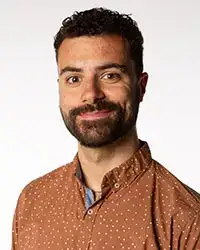
Dr. Kaedan O'Brien
(Assistant Professor, Biological Anthropology)
137 Physical Science
Phone: 607-436-2017
E-mail:kaedan.obrien@oneonta.edu
Spring 2026 student meeting (office hours): Monday 1-3 p.m. and Tuesday 11 a.m.-12 p.m.
Dr. Kaedan O'Brien is an Assistant Professor of Anthropology, specializing in Biological Anthropology. He competed a Bachelor of Science in Anthropology and Zoology at the University of Wisconsin-Madison, and a Master of Science and Ph.D. in Biological Anthropology from the University of Utah. He joined our department in Fall 2024.
Dr. O'Brien's research uses the hominin and large mammal fossil records and stable isotopes to address one central question: What were the paleoenvironmental drivers of human evolution in Africa? This research addresses (1) late Cenozoic mammal community structure, (2) the impact of scale on paleoenvironmental reconstruction, (3) isotopic evidence for prehistoric seasonality and migration, and (4) megafaunal extinction. Currently, he is involved in projects in the Turkana and Baringo Basins of Kenya and the Western Cape of South Africa.
Recent publications:
O’Brien, K. et al. (2024). Limited herbivore migration during the Last Glacial Period of Kenya. Nature Ecology and Evolution.
Kappelman et al. (2024). Adaptive foraging behaviors in the Horn of Africa during Toba supereruption. Nature.
Abraham et al. (2024). Environmental context shapes the relationship between grass consumption and body size in African herbivore communities. Ecology and Evolution.
Greiner, E. et al. (2024). Dental Mesowear from the Tugen Hills Succession (Baringo Basin, Kenya) Demonstrates Increase in Mixed-Feeding Behavior of Late Miocene to Plio-Pleistocene Bovidae. Palaeogeography, Palaeoclimatology, Palaeoecology.
O’Brien, K. et al. (2023) Paleoecological evidence for environmental specialization in Paranthropus boisei compared to early Homo. Journal of Human Evolution.
O’Brien, K. et al. (2023). The utility of alpine cave fossil assemblages for zoological census: an example from northern Utah, U.S.A. Journal of Mammalogy.
O’Brien, K. et al. (2023) Migratory behavior in the enigmatic Late Pleistocene bovid Rusingoryx atopocranion. Frontiers in Environmental Archaeology.
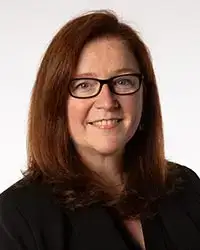
Dr. Alanna Rudzik
(Associate Professor, Biological Anthropology)
136 Physical Science
Phone: 607-436-3336
E-Mail: Alanna.Rudzik@oneonta.edu
Spring 2026 student meeting (office hours): Wednesday 11 a.m - 12 p.m, Thursday 10 a.m. -12 p.m., Friday 8-9 a.m.
Dr. Alanna E.F. Rudzik, Associate Professor, joined our department in Fall 2016. She received her Honours B.A. in Anthropology and English and her M.Sc. in Physical Anthropology from University of Toronto, and her Ph.D. in Anthropology from the University of Massachusetts Amherst. Before coming to SUNY Oneonta, Dr. Rudzik held a SSHRC (Canada) Post-Doctoral Fellowship at University of Toronto and an International Junior Research Fellowship at Durham University in the UK. She was awarded the Richard Siegfried Junior Faculty Prize for Academic Excellence in 2021 and the SUNY Chancellor’s Award for Scholarship and Creative Activities in 2024.
Courses taught:
- ANTH 1300 Introduction to Biological Anthropology
- ANTH 3304 Human Biology and Culture Change
- ANTH 3302 Medical Anthropology
- ANTH 3303 Anthropology of Reproduction
- ANTH 2203 Anthropology of Food and Nutrition
- ANTH 3305 Evolutionary Medicine
- ANTH 4898 Issues in Anthropology
Activities:
Recent publications include “Biologically normal sleep in the mother-infant dyad.” with Prof. Helen Ball (American Journal of Human Biology. 33(5): 1-14); “Biocultural perspectives on infant sleep” with Prof. Ball, Dr. Cecília Tomori and Prof. James McKenna, which appeared in The Routledge Handbook of Anthropology and Reproduction (Routledge Press); and “Discrepancies in maternal reports of infant sleep vs. actigraphy by mode of feeding” with Prof. Ball and Dr. Lyn Robinson-Smith (Sleep Medicine. 49: 90-98). Along with colleagues from the Ontario Independence Program Research team, she has co-authored “Exploring the after-hours social experiences of youth with disabilities in residential immersive life skills programs: A photo elicitation study” in the peer-reviewed journal Disability and Rehabilitation. The article can be accessed through the following permanent link: https://doi.org/10.1080/09638288.2020.1855262 (January 2021) She also co-authored “Opportunities, Experiences, and Outcomes of Residential Immersive Life Skills Programs for Youth with Disabilities” in Disability and Rehabilitation with colleagues from the Ontario Independence Program Research team. (January 2020) and an article titled “Residential immersive life skills programs for youth with disabilities: Experiences of parents and shifts in parenting approaches.” The article appears in the December issue of the Journal of Adolescence. Citation:
Duff C, King G, McPherson AC, Kingsnorth S, and AEF Rudzik. 2019. Residential Immersive Life skills programs for youth with disabilities: Experiences of parents and shifts in parenting approaches. Journal of Adolescence.
Dr. Rudzik delivered the annual Richard Siegfried Lecture on Dec. 2, 2021 in the Craven Lounge, Morris Conference Center. Dr. Rudzik’s lecture, titled “Losing sleep over sleep? How biology and culture shape sleep experience throughout the life course,” was introduced by Dean of the School of Sciences Dr. Tracy Allen, and a Q&A followed the lecture.
Cultural Anthropology
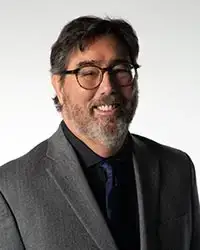
Dr. Brian Haley
(Professor, Cultural Anthropology)
144 Physical Science
Phone: 607-436-2001
E-Mail: Brian.Haley@oneonta.edu
Spring 2026 student meeting (office hours): Wednesday 1-3 p.m. (or by appointment)
Dr. Brian Haley is a cultural anthropologist who received his Ph.D. from the University of California, Santa Barbara. He joined our department in the Fall 2000. Dr. Haley previously had served as Visiting Assistant Professor of Anthropology at the University of California, Riverside, and Post-Doctoral Research Anthropologist at the University of California Institute for Mexico and the United States. His honors include a SUNY Chancellor’s Award for Excellence in Scholarship and Creative Activities, election as Fellow of the Society for Applied Anthropology, Oneonta’s Susan Sutton Smith Award for Academic Excellence, and a Woodrow Wilson National Fellowship.
Dr. Haley is an internationally recognized expert on how and why ethnic, racial, and national identities change. Two publications with Larry Wilcoxon placed him at the forefront of research on a global trend towards the adoption of indigenous identities (see “Anthropology and the Making of Chumash Tradition,” Current Anthropology, 1997, and “How Spaniards Became Chumash, and Other Tales of Ethnogenesis,” American Anthropologist, 2005). He also has conducted ethnographic and ethnohistorical research in rural California, on Spain’s colonization of California, on the Hopi Traditionalist faction, and on the Navajo of Black Mesa, Arizona.
Dr. Haley’s latest book is Hopis and the Counterculture: Traditionalism, Appropriation, and the Birth of a Social Field (Arizona, 2024). It addresses how the Hopi became icons of the followers of alternative spiritualities and reveals one of the major pathways for the appropriation of indigenous identities that exploded in the 1960s. His past books include Reimagining the Immigrant: The Accommodation of Mexican Immigrants in Rural America (Palgrave-Macmillan, 2009), and he co-edited and authored a chapter in Imagining Globalization: Language, Identities, and Boundaries (Palgrave-Macmillan, 2009).
Courses taught:
- ANTH 1000 Introduction to Cultural Anthropology
- ANTH 3015 Anthropology of the Southwest
- ANTH 3020 Mexican Immigration
- ANTH 3130 Religion, Magic, and Myth
- ANTH 3170 Cultural Identities
- ANTH 3280 Critique of Civilization
- ANTH 4100 Applying Cultural Research Methods
- ANTH 4110 Ethnohistory
- ANTH 4998 History of Anthropological Thought
Recent Activities:
Dr. Haley is writing a fourth book, titled Appropriated Identities: Colonialism’s Endgame for the Chumash. It describes the rise of self-indigenizing neo-Chumash and their marginalization of indigenous Chumash with the assistance of institutions and scholars in California’s Central Coast region.
Dr. Haley was interviewed about his new book, Hopis and the Counterculture, by Sam Dingman for “The Show,” on NPR-affiliate KJZZ in Phoenix, Arizona. The interview will air in October 2024.
Research article: “In Cahoots with Neo-Indigenism,” In “(Un)Settling Genealogies: Self-Indigenization in Media, Arts, Politics,” eds. Kim TallBear and Gordon Henry. special issue, Genealogy 8(3), 99 (August 2024).
Dr. Haley was an expert cited by Anthony Perry in “The Fight Over Sacheen Littlefeather’s Heritage Takes and New Twist,” The Daily Beast, March 5, 2024.
Book review: “Becoming Hopi: A History, ed. by Wesley Bernardini, Stewart B. Koyiyumptewa, Gregson Schachner, and Leigh J. Kuwanwisiwma,” Southwestern Historical Quarterly, 125(4): 507-508 (April 2023).
Dr. Haley was interviewed by Ricardo Saenz, on Decolonized Buffalo Podcast, Episode 128: “Interviewing Dr. Brian Haley on Neo-Indians,” January 27, 2023.
Conference presenter: Unsettling Genealogies Conference: A Forum on Pseudo Indians, Race Shifters, Pretendians, and Self-Indigenization in Media, Arts, Politics and the Academy, April 1, 2022. Virtual conference, March 17 – April 25, 2022, Michigan State University.
Data paper: “Some Measures of the Scale of Pretendianism in the United States,” Academia.edu and ResearchGate.net, March 2022.
Dr. Haley was an expert cited by Jacqueline Keeler in “Sacheen Littlefeather was a Native American Icon. Her sisters say she was an ethnic fraud.” San Francisco Chronicle, October 22, 2022.
Dr. Haley was interviewed by Allison Collins for “Columbus, Indigenous people now share October holiday.” Oneonta Daily Star, October 7, 2022.
Dr. Haley’s research on neo-Indians was discussed by Native American writer and journalist Jacqueline Keeler on her Pollen Nation Magazine podcasts, Aug. 10 and June 24, 2020.
Dr. Haley was invited to present his research on the popular misrepresentation of Hopi culture to the staff of the Hopi Tribe’s Cultural Preservation Office and its advisory elders committee in Kykotsmovi, Arizona, March 12, 2020.
The Santa Barbara Independent published an opinion by Dr. Haley on February 22, 2020 chastising scholars who make false claims of expertise to defend their collaborators’ flawed assertions of Native American ancestry and affiliation.
Dr. Haley was cited for his expertise in the Los Angeles Times on December 23, 2019 in an investigative series on the use of false claims of Native American ancestry and affiliation to qualify for minority grants, contracts and jobs.
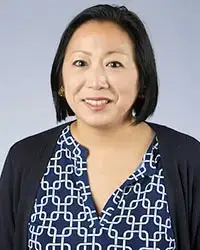
Dr. Sallie Han
(Professor, Cultural Anthropology)
143 Physical Science
Phone: 607-436-2715
E-Mail: Sallie.Han@oneonta.edu
Spring 2026 student meeting (office) hours: Monday & Wednesday 1-2 p.m.
Dr. Sallie Han, Professor, joined our department in Fall 2006. She received her BA in English from Williams College (1992), and her Ph.D. in anthropology from the University of Michigan (2006). She received the SUNY Chancellor's Award for Excellence in Teaching in 2018 and recognized as the SUNY Oneonta School of Sciences Scholar of the Year in 2022.
A specialist in the anthropology of reproduction, Dr. Han’s most recent book is Anthropology of Reproduction: The Basics (Routledge 2025). She is the co-editor of The Routledge Handbook of Anthropology and Reproduction (Routledge, 2021) and The Anthropology of the Fetus: Culture, Society, and Biology (Berghahn Books, 2018), and the author of Pregnancy in Practice: Expectation and Experience in the Contemporary United States (Berghahn Books, 2013). Other major areas of interest include gender, kinship, care, and material culture.
Dr. Han is the director of the Center for Racial Justice and Inclusive Excellence at SUNY Oneonta. She currently serves on the advocacy committee of the Council on Anthropology and Reproduction (CAR). Dr. Han is a former staff writer for The Daily News in New York. Follow Dr. Han on BlueSky @salliehananthro.bsky.social.
Courses taught:
- ANTH 1000 (100) Introduction to Cultural Anthropology
- ANTH 3100 (220) Linguistic Anthropology
- ANTH 3130 (211) Religion, Magic, and Myth
- ANTH 3302 (236) Medical Anthropology
- ANTH 3303 (238) Anthropology of Reproduction
- ANTH 3325 Anthropology of Sexes & Genders
- ANTH 4100 (355) Applying Cultural Research Methods
- ANTH 4120 (312) Exhibiting Cultures in Museums
- ANTH 4998 (393) History of Anthropological Thought
Select activities:
- February 2025. “Making Soup from Stones: Care at the End of the World.” Invited lecture for the Oregon State University Anthropology Lecture Series.
- November 2021. “The Climate of Reproduction in Anthropology.” Invited lecture for the University of Nevada Las Vegas Anthropology Proseminar Speaker Series.
- January 2021. “The Climate of Pregnancy.” Keynote lecture for the “Pregnant Bodies – Embodied Pregnancy” conference, organized by the Morphomata Center for Advanced Studies, University of Cologne, Germany.
- November 2019. “Spectacular reproduction revealed: Genetic genealogy testing as a re(tro)productive technology.” Invited paper for conference on “Integrating Reproductive Technologies,” held at the Brocher Foundation in Geneva, Switzerland.
Select publications:
- Han, Sallie. 2025. “Pregnant Multiplicities: Bodies, Reproduction, and Climate Change.” Body & Society. https://doi.org/10.1177/1357034X251322123
- Greer, Nikky, Jill Fleuriet, Rebecca Galemba, and Sallie Han. 2024. “ Toward an anthropology that cares: Lessons from the Academic Carework project.” American Anthropologist 1–15. https://doi.org/10.1111/aman.28027
- Han, Sallie. 2022. “Spectacular reproduction revealed: Genetic genealogy testing as a re(tro)productive technology.” In Integrating Reproductive Technologies: Propositions for a Life Course Approach in Social Studies of Reproduction. Victoria Boydell and Katharine Dow, editors. London: Emerald Group Publishing.
- Han, Sallie. 2021. “The Text and Talk of Pregnancy: Bringing Language into the Anthropology of Reproduction.” In The Routledge Handbook of Anthropology and Reproduction. Sallie Han and Cecilia Tomori, editors. New York and London: Routledge.
- Han, Sallie. 2020. “Mothering Tongues: Anthropological Perspectives on Language and the Mother-Infant Nexus.” In The Mother-Infant Nexus in Anthropology: Small Beginnings, Significant Outcomes, Sian Halcrow and Rebecca Gowland, editors. Cham, Switzerland: Springer Nature.
- Han, Sallie 2018. “Language and Reproduction.” In The Oxford Handbook of Language and Sexuality, Kira Hall and Rusty Barrett, editors. New York: Oxford University Press.
- Han, Sallie. 2018. “Pregnant with Ideas: Concepts of the Fetus in the 21st Century United States.” In The Anthropology of the Fetus: Biology, Society, Culture. Sallie Han, Tracy K. Betsinger, and Amy B. Scott, editors. New York and London: Berghahn Books.
- Han, Sallie, Tracy K. Betsinger, Michaelyn Harle, and Amy B. Scott. 2018. “Reconceiving the Human Fetus: Perspectives from Bioarchaeology and Cultural Anthropology.” Co-authored with In Reproductive Bioethics, vol. 2. Lisa Campo-Engelstein and Paul Burcher, editors. Cham, Switzerland: Springer International.
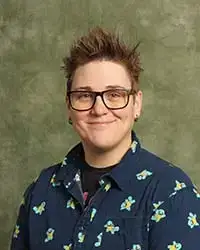
Rachael Sebastian, Ph.D.
(Adjunct Lecturer)
131 Physical Science
Phone: 607-436-3599
E-Mail: Rachael.Sebastian@oneonta.edu
Spring 2026 student meeting (office) hours: Tu, Th 11-12
My research interests are visual storytelling practices, narrative, and its connection with identity and healing. I'm interested in the way visual and musical art, and those who practice use it to structure their social world, build community, and engage in political acts. Also visual communication, and how images communicate more broadly. My geographic areas of knowledge are this region (my dissertation was about the visual art community in Binghamton), New Orleans, and East Africa, and Sub-Saharan Africa more generally.
(My original dissertation plan was to research multilingual music in Tanzania, but that fell through thanks to the pandemic).
Emeritus Faculty
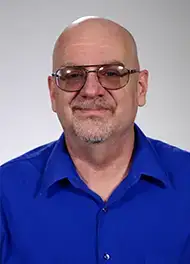
Dr. John H. Relethford
SUNY Distinguished Teaching Professor Emeritus, Biological Anthropology
E-Mail: John.Relethford@oneonta.edu
Dr. John H. Relethford (Distinguished Teaching Professor) is a biological anthropologist who received his Ph.D. in anthropology in 1980 from the State University of New York at Albany. Prior to his current position at SUNY Oneonta, he held the position of Post-Doctoral Research Scientist with the Department of Genetics at the Southwest Foundation for Biomedical Research in San Antonio, Texas. He also served as Manager of Injury and Disability Surveillance in the Division of Epidemiology at the New York State Department of Health. In addition, he has served as an adjunct faculty in the Departments of Anthropology and Epidemiology at SUNY at Albany and in the Department of Anthropology at the State University of New York at Binghamton.
Dr. Relethford is a recipient of the Chancellor's Award for Excellence in Teaching (1994-95), and was the inaugural winner of the SUNY-Oneonta Susan Sutton Smith Prize for Academic Excellence in 1995. He was promoted to the rank of Distinguished Teaching Professor, the highest rank in the State University system, in 1998. He was elected a Fellow in the American Association for the Advancement of Science (AAAS) in 2001 for his "“contributions to understanding the origins of the human species, in terms of our contemporary variation, and for distinguished contributions to undergraduate education in biological anthropology.” He has been awarded the 2017 Gabriel Lasker Distinguished Service Award from the American Association of Physical Anthropology (AAPA), which is given “to recognize and honor individuals who have demonstrated a history of excellence in service to the American Association of Physical Anthropologists, its members, and/or the field of physical anthropology.” (AAPA web page)
In addition to teaching introductory biological anthropology, Dr. Relethford also teaches courses on human evolution and anthropological genetics. Dr. Relethford's major interest is in human evolutionary biology, particularly modern human origins, global patterns of human variation, and anthropological genetics. Much of his research has focused on the reconstruction of history from patterns of modern biological variation. His past work has also included studies of migration, quantitative genetics, child growth, and epidemiology. His current work focuses on global patterns of craniometric variation in relationship to the origin and dispersal of modern humans, and the comparison of Neanderthal and modern human crania.
Dr. Relethford has over 190 publications, including 7 books (some in multiple editions), 86 peer-reviewed journal articles, and 29 book/encyclopedia chapters. His introductory text, The Human Species: An Introduction to Biological Anthropology (McGraw-Hill, 2013), is in its ninth edition. He has also written Genetics and the Search for Modern Human Origins (John Wiley & Sons, 2001), and Reflections of Our Past: How Human History is Revealed in Our Genes, which was published in April 2003 (Westview Press), and awarded the 2004 W.W. Howells Book Prize of the Biological Anthropology Section of the American Anthropological Association. He has also written a textbook entitled Human Population Genetics (2012), published by Wiley-Blackwell. He is also a coauthor of the textbook Human Biological Variation, now in its second edition (Oxford University Press, 2011). His book, 50 Great Myths of Human Evolution: Understanding Misconceptions about Our Origins, was published by Wiley-Blackwell in January 2017. The second edition of Reflections of Our Past (with Deborah Bolnick as coauthor) was published in March 2018.
Other significant publications include "Detection of differential gene flow from patterns of quantitative variation (Human Biology, 1990, with J. Blangero)," “Boas and beyond: Migration and craniometric variation” (American Journal of Human Biology, 2004), “Global patterns of isolation by distance based on genetic and morphological data” (Human Biology 76:449–513, 2004), "Race and global patterns of phenotypic variation" (American Journal of Physical Anthropology, 2009), "Population-specific deviations of global human craniometric variation from a neutral model." (American Journal of Physical Anthropology, 2010), and “Cranial measures and ancient DNA both show greater similarity of Neanderthals to recent modern Eurasians than to recent modern sub‑Saharan Africans” (American Journal of Physical Anthropology, 2018 with Fred Smith).
Dr. Relethford has served as President and Vice President of the American Association of Physical Anthropologists, and as a member of the Executive Committee of the organization. He also served as Chair of Section H (Anthropology) of the American Association for the Advancement of Science. Dr. Relethford also served as Vice President and President of the American Association of Anthropological Genetics. Dr. Relethford has served on the Editorial Boards of American Anthropologist, Current Anthropology, Human Biology, the online journal PaleoAnthropology, the online journal PLoS One, and the Yearbook of Physical Anthropology. He has also served as an Associate Editor for the American Journal of Physical Anthropology, the Journal of Human Evolution, and Human Heredity.
Dr. Relethford retired at the end of 2020.
Recent Publications:
Relethford JH (2023) Technical note: Measures of differentiation for quantitative traits. American Journal of Biological Anthropology 181:483-489.
Relethford JH (2023) Diversity, ancestry, and evolution: the genetics of human populations. In A Companion to Biological Anthropology, 2nd ed. C.S. Larsen, ed. Hoboken, NJ: Wiley-Blackwell, pp. 73-86.
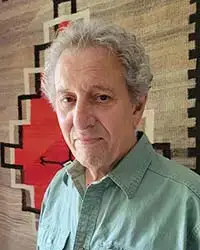
Dr. William A. Starna
Emeritus, Generalist Anthropologist and Ethnohistorian
William A. Starna is a generalist anthropologist and ethnohistorian who spent more than two decades on the faculty at Oneonta. He has held lecture, visiting, and adjunct appointments at the University at Albany, Binghamton University, Queen's University (Kingston, Ontario), and the New York State Museum. In 2014 he was the National Endowment for the Humanities Distinguished Visiting Professor in the Humanities at Hartwick College and currently is a research affiliate with the Department of Anthropology, University of Connecticut.
After attending Fulton-Montgomery Community College, Professor Starna completed his undergraduate and graduate education at the University at Albany. His scholarly interests and research focus on the Iroquoian and Algonquian peoples of eastern North America— ethnohistory, ethnology, and archaeology—in addition to contemporary state and federal Indian policy. He is the recipient of a National Endowment for the Humanities Fellowship; a Senior Fellowship at the Nelson A. Rockefeller Institute of Government; the Donald M. Blinken Fellowship in Academic Administration at SUNY Central Offices; and a New York State Library Research Residency. Professor Starna is a Fellow of the New York Academy of History and Trustee Emeritus of The Jacob Leisler Institute for the Study of Early New York History. In 2016 he received the Alice P. Kenney Memorial Award from the New Netherland Institute for his contributions to the study of Dutch colonial history. Professor Starna has been a consultant with the Native American Rights Fund and over twenty American Indian tribes on land claims, treaty rights, and the federal acknowledgment process. In addition, he has served as a historical consultant with law firms representing Native people and their communities.
Professor Starna has numerous scholarly publications, including books and monographs: the co-edited Iroquois Land Claims (1988); The Journal of Harmen Meyndertsz van den Bogaert (1988, 2013); The Journals of Christian Daniel Claus and Conrad Weiser (1994); In Mohawk Country (1996); A Description of New Netherland (2008); the two volume Gideon's People, Being a Chronicle of an American Indian Community in Colonial Connecticut and the Moravian Missionaries Who Served There (2009); and A Quaker's Tour of the Colonial Northeast and Canada: The1773 Travel Journals of Jabez Maud Fisher of Philadelphia (2014). He also co-edited the memoirs and writings of William N. Fenton, the eminent scholar of the Iroquois (2007, 2009). He is the author of From Homeland to New Land: A History of the Mahican Indians, 1600-1830 (2013).
Staff
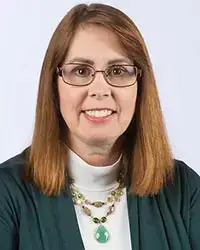
Cindi Hall
(Administrative Assistant)
133 Physical Science
Phone: 607-436-3345
E-Mail: Cindi.Hall@oneonta.edu
Cindi joined our department in the Fall of 2006. She obtained her BS in Sociology from SUNY Oneonta (2013) and has always worked as an Administrative Assistant. She is the mother of 3 grown men and has 5 grandchildren. In her spare time, she loves crafting, gardening, riding 4 wheeler, hiking, camping and baking. She also loves to travel, meet people and experience different cultures.
Contact the Anthropology Department
133 Physical Science Building
108 Ravine Parkway
Oneonta, NY 13820
United States